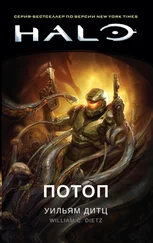It took a moment for the words to sink in. The assignment had been temporary. A way to plug an organizational hole. And now, in the wake of Howard’s death, Colonel Granger wanted her back. “I see,” Mac said. “Thanks for the vote of confidence.”
Owen shrugged. “A lot of good it did. But that’s to be expected. You’re a hero now, and all over the news. That’s the other thing… You have orders to swing by Fort Knox on your way to Murfreesboro. The president wants to thank you.”
“The president?” Mac remembered the man with mud on his face and the pain in his eyes. The attempt to establish an airhead in Richton had been a mistake. Sloan’s mistake. But he’d been there, fighting shoulder to shoulder with the Rangers, many of whom died for him. And for their country. She would never forget that.
“Yes,” Owen said. “The president. And the press will have a field day. You pulled Sloan’s ass out of Richton, then you smoked the warlord who was trying to kill him. I’m no reporter, but that sounds like one helluva good story to me.”
Mac had zero media-relations experience, and knew it would be easy to say the wrong thing. “I would prefer to join my battalion, sir. That’s where I can make a difference.”
Owen laughed. “Nice try, Robin… But if the commander in chief wants to see you, then guess what? He’s going to see you.
“Oh, and there’s one more thing… You’re scheduled to meet with a New York Times reporter at 1100. I’d send our PA officer with you, but we’re still waiting for a replacement. One who doesn’t work for the enemy.”
Mac left Owen’s office with a new set of orders and a feeling of dread. But the interview with reporter Molly Thomas wasn’t as bad as Mac feared. Most of the journalist’s questions were of the sort that could be answered by anyone who knew the facts. But, toward the end of the interview, Thomas dropped a bomb on her. “So, Captain… You’re a combat veteran. How is the war going?”
Mac chose her words with care. “I’m a junior officer… So I don’t have enough information to answer your question. But I can tell you this… Most of the men and women of this battalion are from the South, and they fought bravely. They’re the ones who deserve credit for bringing Howard’s reign of terror to an end.”
Thomas winked, as if to say, “Well played.” Then she turned to the subject she’d clearly been waiting to bring up. “I assume you know that your sister and your father are fighting for the New Confederacy.”
“Yes,” Mac replied stiffly. “That’s what I’ve been told.”
Thomas nodded. “Are you aware that, according to a story in the Dallas Morning News , your father has been named Chairman of the Confederacy’s Joint Chiefs of Staff?”
That came as a shock. Her father, the man Mac most wanted to please, was in charge of the military machine she was sworn to fight. “No,” she replied. “I didn’t know that.”
The follow-up question was teed up and ready to go. “Do you have a message for your father?”
At least twenty seconds ticked by as Mac considered various answers. Finally, having rejected all the rest, she spoke. “My father taught me to fight for what I believe in. That’s what I’m doing.”
Later, while Mac was waiting for her train, she saw the story online. The comment about her father was featured as a boxed pull quote, inside the larger article. The headline was: A FAMILY AT WAR. It ran front page left, just below the fold. Would her father see it? Yes, Mac thought. He will.
Airliners couldn’t fly without fighter escorts, and there was a shortage of them. The net effect was a huge demand for train travel. Unfortunately, the country’s long-neglected railroads weren’t ready for the increase in traffic, and the system was struggling to cope. The result was a lot of scheduling problems, delays, and derailments.
So as Mac boarded the train that would take her to Kansas City, and on to Louisville, it was standing room only for civilians. And the two cars that had been set aside for military personnel were almost full. Mac made her way to the second one, where she found a seat among a group of engineers. Someone said, “Atten-hut!” but Mac waved the soldiers back into their seats. A sergeant was nice enough to heave her bags up onto the overhead rack.
As the soldiers returned to playing cards, Mac curled up in a corner. Here was a chance to get some much-needed shut-eye, and in spite of all the noise, Mac was asleep before the train cleared the station.
But rather than the dreamless nothing she’d been hoping for, Mac found herself back in combat. She and her troops were pinned down, a wounded soldier kept calling for his mother, and Huntington’s intestines were piled in her lap. “Stuff ’em back in,” the scout ordered. “And zip me up. I have work to do.”
In the meantime, Worsky was battling to get her attention. “It’s Bravo-Two, ma’am… He says his platoon is surrounded, and they’re running out of ammo. What should they do?”
Mac felt a touch and awoke with a jerk. As her eyes opened, she saw that the corporal sitting across from her was settling into his seat. “Are you all right, ma’am? You were making noises.”
Mac looked around. The engineers were gone. She glanced at her watch. It was 1322. Mac had slept through the first stop. She forced a smile. “Sorry, Corporal… I had pizza for dinner last night. It didn’t agree with me.”
The soldier nodded, as if that explained everything, and went back to playing a game on his laptop. Mac could hear shouting and the rattle of machine-gun fire. The corporal was playing a combat game! How could he? Why would he? She looked down at her hands. They were shaking. You’re cracking up, the voice said.
“Bullshit,” Mac replied. “I’m tired, that’s all.”
Right, and you’re cracking up, the voice responded.
The train swayed as it rounded a curve, and Mac put her hands in her pockets. How much combat was too much? The question went unanswered as the train rattled over a bridge and roared past a barn. The landscape became a blur after that… Mac closed her eyes. There weren’t any dreams this time, and when she awoke, the train was in Kansas City.
A conductor helped get her bags down, but Mac was on her own after that. Because she couldn’t carry both pieces of luggage, Mac wore one like a pack while dragging the other behind her. It produced a series of thumps as it tumbled down the stairs and fell into the entryway. From there, Mac managed to kick the duffel bag onto the platform as a man in civilian clothes stood and watched.
Then Mac had to wait two hours for a connection that was scheduled to depart an hour and a half earlier. Once it arrived, and loading began, an air force pilot stepped in to help with the bags. His name was Charlie something… He was a C-17 Globemaster pilot and quite attractive.
But Mac saw him slip his wedding ring off shortly after they boarded the train and kept her guard up after that. Slimeball or not, it was interesting to hear Charlie’s take on the air war. “Their pilots are as good as ours,” Charlie observed. “And that makes sense. We were part of the same air force six months ago. So both sides are even where the human dimension is concerned.
“But here’s why we’re going to win… Northrup Grumman produces a lot of military aircraft up north, and so does Boeing. That leaves Lockheed to manufacture planes in the South. The so-what being that the Union has the upper hand where industrial production is concerned.”
It was a convincing argument, and Mac hoped that Charlie’s analysis was correct. But her father was a very resourceful officer. Would he use the proceeds from the country’s oil reserves to buy planes from abroad? Hell yes he would, depending on what was available.
Читать дальше
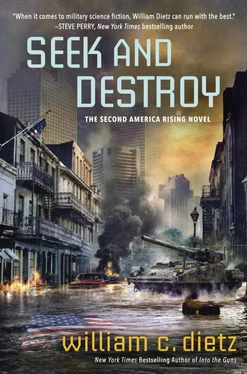
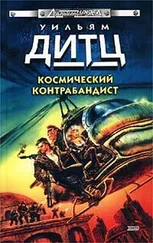
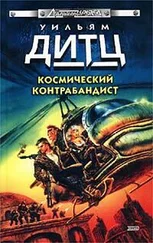
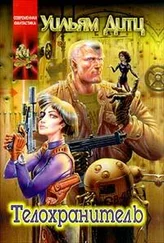
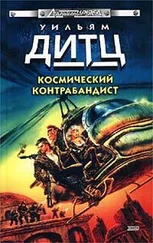
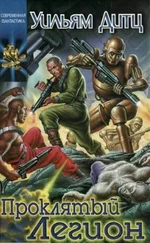
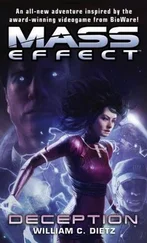

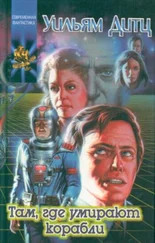
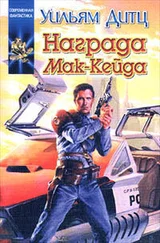
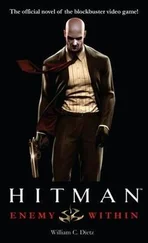
![Уильям Дитц - Избранные произведения в одном томе [Компиляция]](/books/389750/uilyam-ditc-izbrannye-proizvedeniya-v-odnom-tome-k-thumb.webp)
